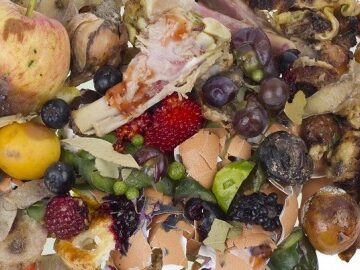There are a number of unwritten rules when it comes to the food we keep and eat, as well as a number of stereotypes and habits that we never question. Much of these misconceptions are passed down to us without question. However, when we look closely, we can learn that not only are these misconceptions occasionally wrong but that they are actually withholding benefits too.
Today, we are sharing four common misconceptions, those that are ubiquitous across the UK, even now. Some of these you may know from your childhood while others you might have only learned recently. And, while these are sure to surprise you, we also hope that they will encourage you to safely question your food practices, helping you to find beneficial ways to purchase, store, and eat your favourite foods!
Frozen Food Decreases Nutrition
Only in recent years has frozen food been given its due scrutiny. For many years, it has been said that freezing food substantially decreases its nutritional value, which has also led people to shy away from making frozen food purchases for fear that they are not as valuable to a diet.
It has now been shown that frozen food actually causes very little impact upon a food’s nutritional value. This is great news not only for our dietary health, opening up a new section of the supermarket, but also for the planet because frozen foods, with their extended shelf life, prevent food waste and drastically reduce carbon emissions.
Microwaves Remove Goodness
Tarnished with the same stigma as the household freezer, microwaves have long been seen as a kitchen asset that lacks value. The idea that microwaves reduce your food’s nutritional value is, again, also a misconception. In fact, your microwave rice and vegetables will have just as much goodness within them as they would have when taken off the stove. The issue actually comes from overcooking your food, which may be more of an issue with microwaves because it is more difficult to judge the cooking time accurately. However, you can have a meal just as nutritious and delicious from the microwave as you can from the stove!
Fat Is Bad
Diets are rife with misinformation and, while their intentions are often good, they can unintentionally lead to some harmful outcomes. One of the most common misconceptions is that a food’s fat content is bad. The issue arises from language and the term ‘fat’ has become inextricably linked to weight gain and health issues.
This, however, should not be the case because there are a number of natural fats, such as those found in avocados and olive oil, that are beneficial to our health.
Plant-Based Diets Are Unhealthy
One of the most resilient criticisms of plant-based diet culture is that it is deficient in certain areas, namely protein. As plant-based diets become more widespread, however, championed by a number of internationally recognised athletes, such as those appearing in The Game Changers documentary, we are now understanding that there is a great potential for balanced diets to be achieved without the addition of meat. Protein, as an example, can be found in a wide range of other foods, including grains, legumes, and vegetables, all of which are without the associated harm of red meats.
















